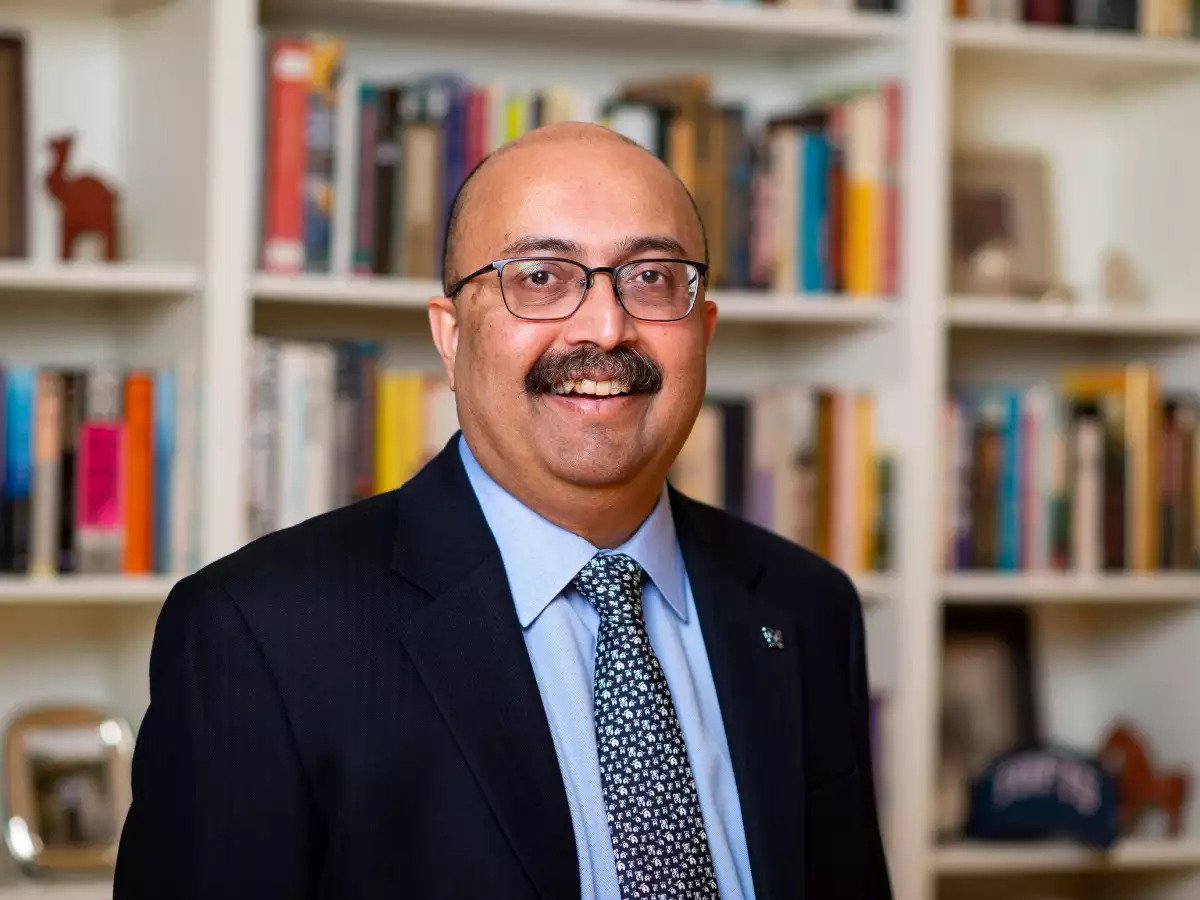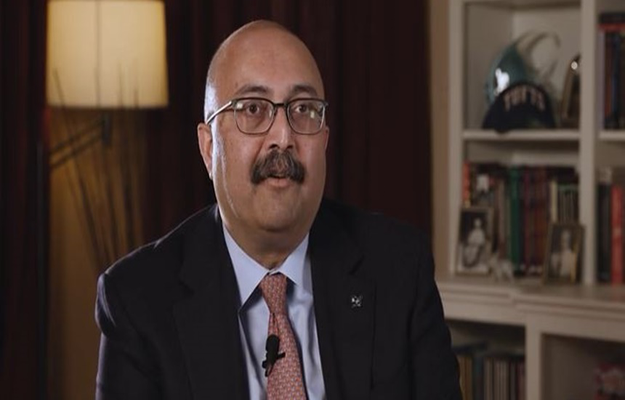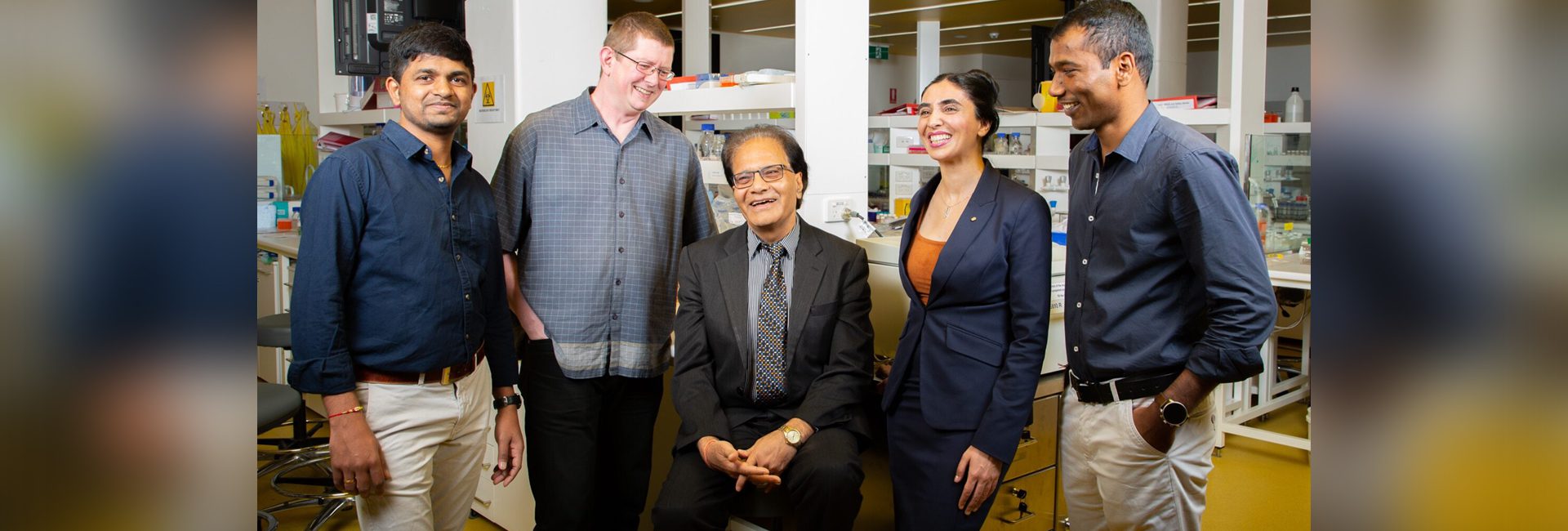(November 22, 2022) History is being created at the Massachusetts-based Tufts University, as Indian-American academician Sunil Kumar has become the first person of colour to be appointed as its next president. Indian-origin Kumar, who is provost and senior vice president for academic affairs at Johns Hopkins University, will succeed President Anthony P Monaco next summer. Peter Dolan, the chair of the Board of Trustees said that Sunil “brings to Tufts a lifelong commitment to excellence in higher education and an exceptionally strong record as a leader, teacher, and colleague,” and is confident that Kumar will “help bolster Tufts’ mission to improve the world.”
Sunil, on the other hand, was attracted to Tufts because of its mission to serve “not only the people within its confines — its students, faculty, and staff — but the society at large,” and he is keen to take up the presidency on July 1, 2023.

Sunil Kumar will be Tufts University’s next president
Born in Bengaluru to a father who served in the police, Kumar often moved around the country, and it taught him to view “change as exciting and welcoming.” This set the foundation for Kumar as a young lad who ended up graduating in 1990 with a bachelor’s in engineering from Mangalore University. Later, he enrolled in the Indian Institute of Science in Bengaluru for a master’s degree in computer science and automation. It was here that he met a visiting professor from the University of Illinois at Urbana-Champaign, who recruited him for a doctoral program in electrical engineering. After receiving his Ph.D. from the University of Illinois in 1996, he dipped his toes into the world of academia by teaching at the Stanford Graduate School of Business. “When I was a rookie assistant professor at Stanford, it took me a couple of years to get used to the fact that they would pay me to do that stuff. And I have never lost that kind of awe and wonder about the academic enterprise, and I’m the happiest in it,” he told Tufts.
After spending a considerable amount of time at Stanford, he was named dean of the University of Chicago Booth School of Business. Almost six years ago, he became provost and senior vice president at Johns Hopkins.
Sunil Kumar, provost and senior vice president at @JohnsHopkins, has been appointed Tufts University’s next president, starting July 1, 2023. https://t.co/sUMZEr8j0l pic.twitter.com/wNHuiIhFWP
— Tufts University (@TuftsUniversity) November 17, 2022
Now with a few months left to officially take over the president of Tufts University, Kumar says that certain exciting challenges keep him awake, including, “how to make the Tufts experience available and accessible to more people, how to make Tufts research even more impactful and how do we help society more, here and now.”
For someone who moved from Bengaluru to Illinois, he understands the importance of making Tufts affordable, as he knows the value of financial aid in higher education. He received generous financial support for his graduate studies at the University of Illinois, and added, “It would not have been possible for me as a son of a police officer to do anything else,” adding, “Affordability is not a theoretical concept for me. I hope I represent an example of somebody who benefited from an institution opening its doors wide and I would like even more people to have the same opportunity.”
Being the first person of colour to lead Tufts University, he calls “diversity and inclusion” indispensable values, and says that it’s not enough to talk the talk. “We also have to make sure that we operationalise our values, and sufficiently resource them so that we can execute on those values and make sure that Tufts is indeed as inclusive as it can be,” the Global Indian added.

Sunil Kumar is an Indian-origin academician
Kumar, who will take over as the 14th president of Tufts University coming July, knows that his mission is to produce well-rounded individuals – something he missed out on being an engineering student. When he moved to Illinois, he discovered through the library what he had missed by not having a liberal arts education. “What matters is to develop the mind and to strengthen the heart. And for that liberal arts education is essential,” he added.


